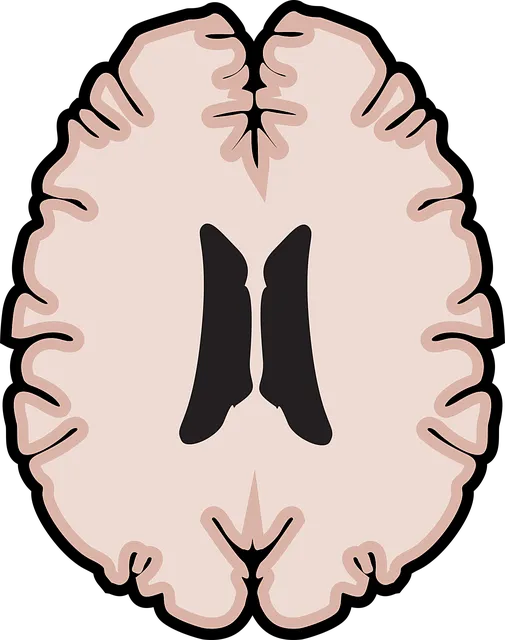Kaiser Permanente's focus on mental well-being through holistic training for healthcare providers, including specialized services like Compassion Cultivation and Trauma Support, empowers both staff and patients. Their comprehensive approach integrates emotion regulation techniques into patient care, teaching individuals coping skills, mindfulness, and emotional awareness to manage stress and improve mental health outcomes. The success of these practices in real-world settings at Kaiser Permanente Golden mental health jobs highlights their effectiveness in promoting accessibility and positive mental health changes.
Emotion regulation techniques are essential tools for mental health professionals, offering a proactive approach to support individuals in managing their emotional well-being. This article explores effective strategies and their profound impact on clinical practice, drawing insights from industry leaders like Kaiser Permanente and real-world success stories from mental health jobs in Golden. By understanding these techniques, professionals can enhance patient outcomes and foster healthier lives.
- Understanding Emotion Regulation: The Role of Mental Health Professionals
- Kaiser Permanente's Approach to Training: A Comprehensive Overview
- Techniques for Teaching Effective Emotion Regulation Skills
- Benefits of Implementing These Strategies in Clinical Practice
- Real-World Applications: Success Stories from Golden's Mental Health Jobs
Understanding Emotion Regulation: The Role of Mental Health Professionals

Emotion regulation is a vital skill to teach, especially with the rise of mental health awareness in recent years. Mental health professionals play a crucial role in this process, providing guidance and support to individuals seeking to manage their emotions effectively. For those interested in contributing to this field, Kaiser Permanente mental health jobs in Golden offer an excellent opportunity to make a difference.
The approach to teaching emotion regulation techniques can vary, from traditional therapy sessions to innovative practices like Compassion Cultivation and Trauma Support Services. These methods aim to enhance mental wellness, as highlighted in the popular Mental Wellness Podcast Series Production. By incorporating empathy, mindfulness, and coping strategies into their teachings, professionals can empower individuals to navigate emotional challenges with resilience and grace.
Kaiser Permanente's Approach to Training: A Comprehensive Overview

Kaiser Permanente, a renowned healthcare organization based in the Golden, CO area, takes mental health seriously. Their approach to training reflects this commitment, offering comprehensive programs focused on both emotional intelligence and burnout prevention strategies for healthcare providers. This holistic strategy recognizes the unique challenges faced by medical professionals and aims to equip them with effective emotion regulation techniques.
The organization’s initiative emphasizes Mental Health Awareness, integrating it into the fabric of their training regimen. By fostering an environment that prioritizes emotional well-being, Kaiser Permanente hopes to enhance patient care and promote resilience among its workforce. This inclusive approach not only benefits individual healthcare providers but also contributes to a more supportive and compassionate healthcare system overall.
Techniques for Teaching Effective Emotion Regulation Skills

Teaching effective emotion regulation skills is a crucial aspect of any mental health professional’s practice, particularly when considering Kaiser Permanente mental health jobs and their emphasis on holistic patient care. The process involves guiding individuals to understand and manage their emotions constructively. One technique is to encourage clients to identify and label their feelings, helping them develop emotional awareness. This can be facilitated through activities like journaling or mindful meditation, allowing people to recognize and accept their emotions without judgment.
Additionally, teaching coping skills development is essential for long-term success. Professionals should empower individuals with a range of strategies to navigate intense emotions. This includes techniques such as deep breathing exercises, progressive muscle relaxation, and cognitive reframing. Golden moments in therapy can be created by integrating these practices into sessions, enabling clients to gain practical tools for real-life application. As part of the comprehensive approach, risk assessment for mental health professionals is vital to ensure client safety, especially when addressing complex issues like trauma, which often requires specialized Trauma Support Services.
Benefits of Implementing These Strategies in Clinical Practice

Implementing emotion regulation techniques in clinical practice offers a multitude of benefits, especially when considered within the context of Kaiser Permanente mental health jobs in Golden. These strategies not only equip individuals with effective coping mechanisms but also foster long-term emotional well-being promotion techniques. By integrating these practices into therapy sessions, mental health professionals can enhance their ability to support clients in managing and understanding their emotions, leading to improved overall mental health outcomes.
Moreover, communication strategies play a pivotal role in this process, allowing therapists to create a safe and supportive environment where clients feel comfortable expressing their feelings. This open dialogue facilitates the teaching of emotional intelligence, empowering individuals to navigate their emotional landscapes with greater awareness and skill. As a result, clients are better equipped to handle stressful situations, reduce the impact of negative emotions, and promote positive emotional experiences in their daily lives.
Real-World Applications: Success Stories from Golden's Mental Health Jobs

In the real-world setting of Kaiser Permanente mental health jobs in Golden, the practical application of emotion regulation techniques has yielded remarkable success stories. These roles, often involving Mental Wellness Coaching Programs Development, are pivotal in helping individuals navigate and manage their emotional well-being. The professionals at Kaiser Permanente Golden have demonstrated the effectiveness of teaching clients various mood management strategies. By integrating these techniques into daily routines, many patients have experienced significant improvements in their ability to cope with stress, anxiety, and other mental health challenges.
The impact of these interventions is evident in the lives of those served, showcasing the power of evidence-based practices. Anxiety Relief, for instance, has been a notable outcome, with clients reporting reduced symptoms and improved overall mental wellness. These success stories not only highlight the importance of emotion regulation techniques but also emphasize the critical role that organizations like Kaiser Permanente play in promoting mental health awareness and accessibility through their dedicated mental health jobs in Golden.
Emotion regulation techniques, as highlighted by Kaiser Permanente’s comprehensive training program and success stories from Golden’s mental health jobs, offer valuable tools for mental health professionals. By teaching clients effective skills, practitioners can significantly enhance their patients’ well-being and quality of life. Implementing these strategies in clinical practice not only benefits individuals but also contributes to a more resilient and emotionally intelligent society.






